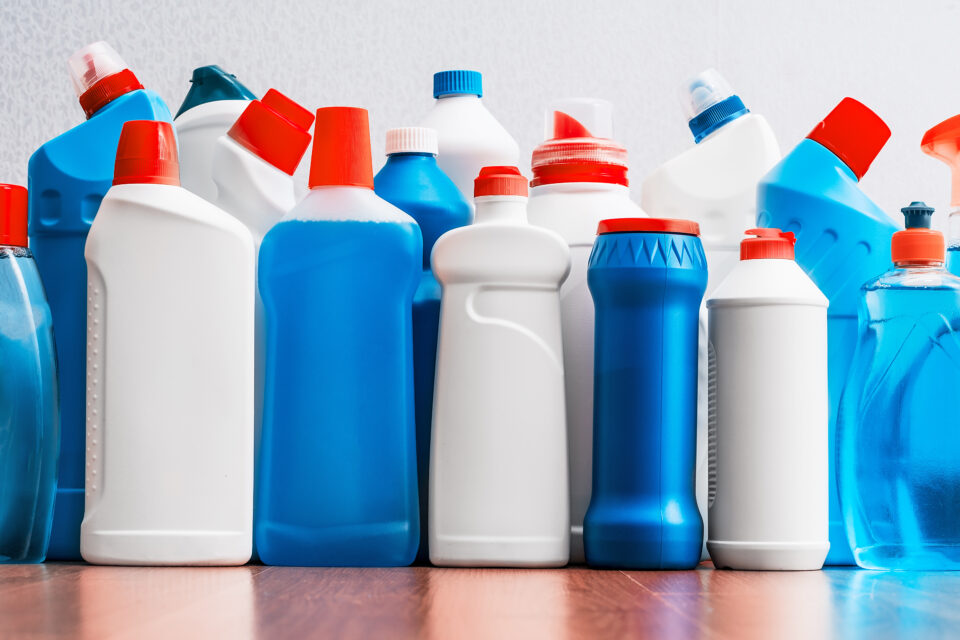Toxic Substances

Household Hazardous Waste
Household hazardous waste disposal should be done at the Allen County Department of Environmental Management’s Household Hazardous Waste drop-off.
Formaldehyde is a colorless, flammable gas at room temperature and has a strong odor. People are generally exposed to formaldehyde in their homes from the emissions of fuel-burning appliances, gas stoves, kerosene heaters, and from cigarette smoke. The highest exposure comes from the glue in wood-pressed products.
Exposure to formaldehyde may cause adverse health effects, including irritation of the skin, eyes, nose, and throat. High levels of exposure may cause some types of cancers.
Lead is a naturally occurring element found in all parts of our environment – the air, the soil, the water, and even inside our homes. While it has some beneficial uses, it can be toxic to humans, particularly children.
Children under the age of 6 years are especially vulnerable to the effects of lead because their growing bodies absorb more lead than adults do and their brains and nervous systems are more sensitive to the damaging effects of lead. While the damage to some parts of the body like the gastrointestinal system can be treated, the damage to the brain is irreversible.
Because many children with lead poisoning do not have any symptoms, the only sure way to tell is with a blood test. Ask your physician or health care provider about having your child tested. The Department of Health also provides blood lead level testing and other services for children and families affected by lead poisoning.
Get more information on our Childhood Lead Poisoning Testing Page.
Mercury is a naturally-occurring element found in air, water and soil. Because of its properties, mercury is a useful substance for a variety of electronic devices and industrial applications, but it is also highly toxic to humans.
Exposure to mercury can affect the human nervous system and harm the brain, heart, kidneys, lungs, and immune system. The most common way we are exposed to mercury is by eating fish or shellfish that are contaminated with mercury.
Mercury is often used in everyday household objects, including thermometers, florescent light bulbs, thermostats, gauges, clothes irons and some oil-based paint. So it’s important to dispose of those items properly. Mercury should not be put in the trash or poured down the drain. Items containing mercury can be taken to the Allen County Department of Environmental Management or a mercury recycling location.
Methamphetamine (Meth) is an addictive stimulant drug chemically similar to amphetamine. It takes the form of a white, odorless, bitter-tasting crystalline powder.
Methamphetamine production involves a number hazardous chemicals. Toxicity from these chemicals can remain in the environment around a methamphetamine production lab long after the lab has been shut down, causing a wide range of health problems for people living in the area.
Dwellings (including houses, apartments, duplexes and hotel/motel rooms) where meth is manufactured are considered uninhabitable until they are properly decontaminated per state law (Title 318 IAC 1).
Visit the Allen County Department of Environmental Management’s Household Hazardous Waste website for information on hazardous waste disposal.